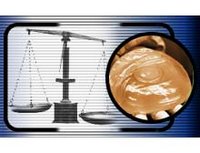
It looks like the editors of the journal Analytical Chemistry are distancing themselves from the controversial May article where researchers claimed to identify the presence of previously undocumented toxic Platinum radicals in patients with silicone breast implants. A summary from today can be read here. Catherine Fenselau, the associate editor who handled the manuscript, says, “The manuscript went through a full review and, as the associate editor who handled it, I am ultimately responsible for the review process. In hindsight, there now seem to be strong arguments that the science in the paper was probably flawed.”
This should come as little surprise as the conclusions and methods of the researchers were controversial when the article was accepted for publication. A number of chemists pointed out that the conditions to produce the unstable oxidative platinum radicals could not exist outside carefully controlled laboratory conditions.
Thomas Lane, a senior chemist with Dow Corning Corp., was quoted asThese platinum states are so inherently unstable that they spontaneously revert to less reactive(and benign)conditions.
saying that “the facts are just not right.”
Michael Brook, a silicone expert from McMaster University (Canada), said the data and conclusions are “hard, if not impossible, to accept.” (Note: Dr. Brook has been a consultant to Inamed Corp. on their breast implant presentations).
Steven Pollack of FDA’s Center for Devices and Radiological Health/Office of Science and Engineering Laboratories.“The general sense we have from the science that is available is that the platinum is in its zero-valence state as released from the implant. We have no other evidence to say that it is in any other form, other than this paper, [in] which we find the science is questionable,”
If you'll remember from a previous post on this (see below), the FDA did not agree with the findings of the paper in question and quite boldly dismissed it on the record. The activists were once again ahead of the curve here grasping for any maneuver to influence this issue. I think this points towards how wary people should be in accepting papers, even from journals as prestigious in their field as Analytic Chemistry or Plastic Surgery, when bold discoveries in controversial fields appear in the literature that dispute current understanding.
Tags
plastic surgery
silicone
breast implant
platinum




No comments:
Post a Comment